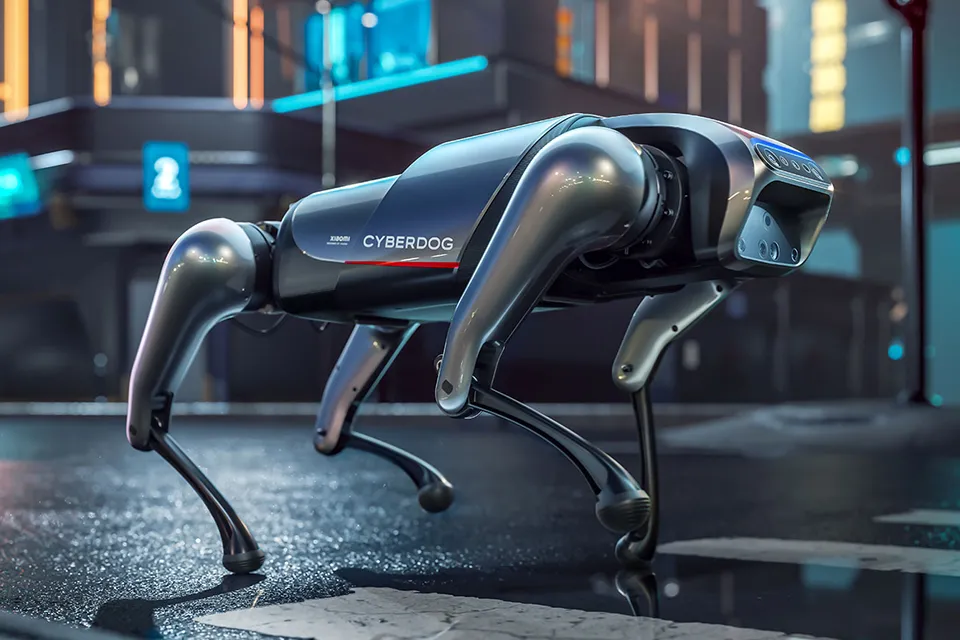Taking a step away from the realm of sci-fi and into reality, Chinese electronics maker Xiaomi has come out with its own version of a terrifying robot dog — the CyberDog.

Costing just over $1,500, this quadrupedal robotics marvel is a dead ringer for Boston Dynamics' pricey $75K Spot. Fully packing an NVIDIA Jetson Xavier NX platform AI supercomputer complete with 384 CUDA Cores, 48 Tensors Cores, a 6 Carmel ARM CPU, and 2 deep learning acceleration engines, the CyberDog packs a punch in terms of processing power.

Navigating through its world via 11 sensors. Including touch sensors, cameras, ultrasonic sensors, GPS modules, and more - this robotic creature also comes equipped with an Intel RealSense D450 Depth module for centimeter-scale obstacle avoidance. This sophisticated piece of technology can create maps and navigate its environment in real-time as well as recognize human faces thanks to its specialized software. So you can even have it follow you if desired.

Its engagement level doesn't stop there: designed to be augmented upon reception by developers and dedicated Xiaomi enthusiasts alike, owners are able to customize their robot friends however they choose to give them endless possibilities in terms of programming versatility.

Priced at RMB 9,999 (~$1,542), now's your chance to score one of these highly advanced yet incredibly affordable components of modern technology. If you do decide to take the plunge and purchase yourself one of these futuristic cyberpets, then you can expect your investment to start paying dividends within no time at all. After all, it's estimated that these little robotic companions will be kitted out exceptionally soon.
KaaS by AI - From Knowledge to Business

This insight isn’t free. But it’s built to pay off.
This insight isn’t free.
But it’s built to pay off.
Premium insights aren’t free — but they’re not expensive either.
You’re here to leverage, not to consume
You’re not here to stay average. You’re here to build differently.
KaaS turns focused knowledge into your next advantage.
Unlock KaaS for less than your coffee ☕ — with far more leverage. 🚀

















.webp)





















